
Resilient Supply
GRI 3-1, 3-3
Over the years, D&L’s business has grown in lockstep with the volume of coconut oil used in products across many sectors, from food ingredients to home & personal care, from biodiesel to industrial solutions. To fuel its current and future growth, the Company needs a stable, resilient, and progressive Philippine coconut industry.
On the other hand, the rising frequency of extreme weather conditions in many parts of the world has sharpened awareness among many stakeholders on the need to slow down, if not entirely reverse, anthropogenic global warming. Poor nations that bear the brunt of devastating floods and fierce forest fires call on wealthier nations to spend more to make up for the decades of burning fossil fuels that have fed the latter’s industrialization. The rich nations themselves have not been immune, with hurricanes and drought alternately wreaking havoc on their cities and vineyards.
Stakeholders, from the United Nations to governments, regulators, capitalists, and industries, down to non-government organizations, activists, and workers, all see the need to act from the largest to the smallest scales.
Renewable energy sources are replacing fossil fuel power. Plant-based oils are preferred over industrial and commercial uses of petroleum-based ingredients.
Coconut Industry Development
GRI 3-3 | SDG 17.16, 17.17
Philippine Government Initiatives
The Philippine government launched the Coconut Farmers and Industry Development Plan (CFIDP) on June 24, 2022, as mandated by Republic Act 11524, also known as the Coconut Farmers and Industry Fund Act. The CFIDP aims to develop the coconut industry through Executive Order 172 signed on June 2, 2022, which provides funding for programs that support farming, processing, marketing, research, development, and social protection. The plan seeks to enhance productivity, promote sustainability, integrate the value chain, and expand market access. The coconut industry, which employs over three million workers and contributes 1.5% of the GDP, plays a crucial role in the Philippine economy, and the CFIDP is a significant initiative that supports the industry’s sustainable development.
Chemrez actively engages with the Philippine Coconut Authority (PCA) and coordinates industry action with the United Coconut Association of the Philippines (UCAP). Meanwhile, the Lao Foundation works with D&L, Chemrez, Oleo-Fats, some affiliates, and a few business customers interested in smallholder initiatives for coconut farmers.
Coconut Sustainability Initiative (CSI)
GRI 2-22
While green investors show heightened interest in the Company’s sustainability profile, B2B customers have increasingly queried subsidiaries Chemrez and Oleo-Fats on their programs, if any, supporting traceability in their supply chains, as well as on improving the lives of small farmers, their families, and rural communities upstream.
Given how coconut oil plays such a huge role in its overall business, the Company formalized its Coconut Sustainability Initiative in 2022.
Sustainable Coconut and Coconut Oil Roundtable (SCCOR)
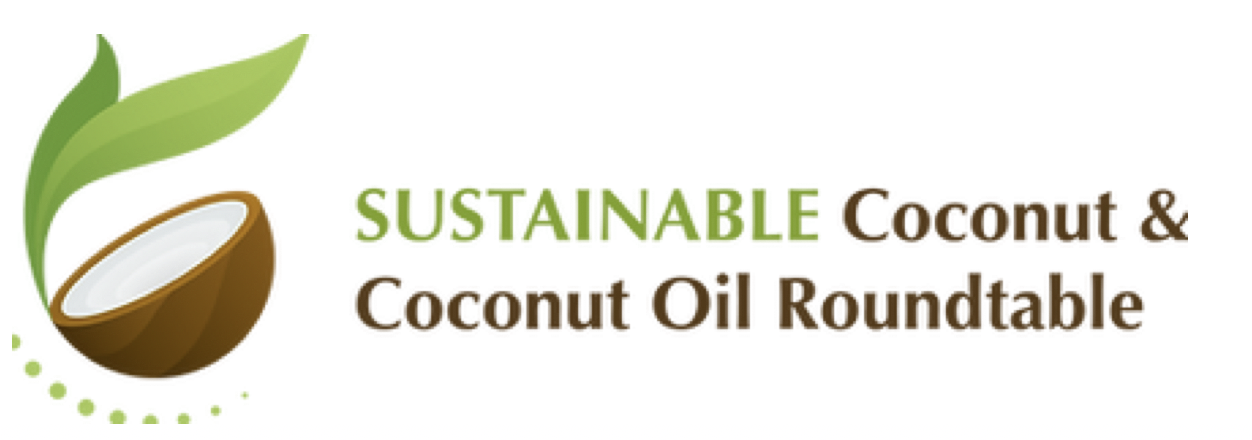
Oleo-Fats actively participates in the Sustainable Coconut and Coconut Oil Roundtable as a Member, attending the Seventh Sustainable Coconut In-Person Event in The Peninsula Manila on November 25, 2022.
D&L is integrating the framework of the Sustainable Coconut Charter (SCC) with Government’s CFIDP. The Company’s commitment to sustainability is evident in its CSI, which is rooted in the SCC’s four key principles: responsible production, responsible sourcing, social responsibility, and economic viability.
The SCCOR is a global initiative that aims to promote sustainability and responsible sourcing in the coconut industry. It unites coconut industry stakeholders from all over the supply chain to work together towards a sustainable and responsible coconut industry. Oleo-Fats’ membership in the SCCOR demonstrates D&L’s dedication to sustainability and responsible sourcing in the Philippine coconut industry. By embracing the SCC’s framework and implementing it through its CSI, the Company is contributing to the promotion of sustainable and responsible coconut production and sourcing, and positively influencing change in the industry.
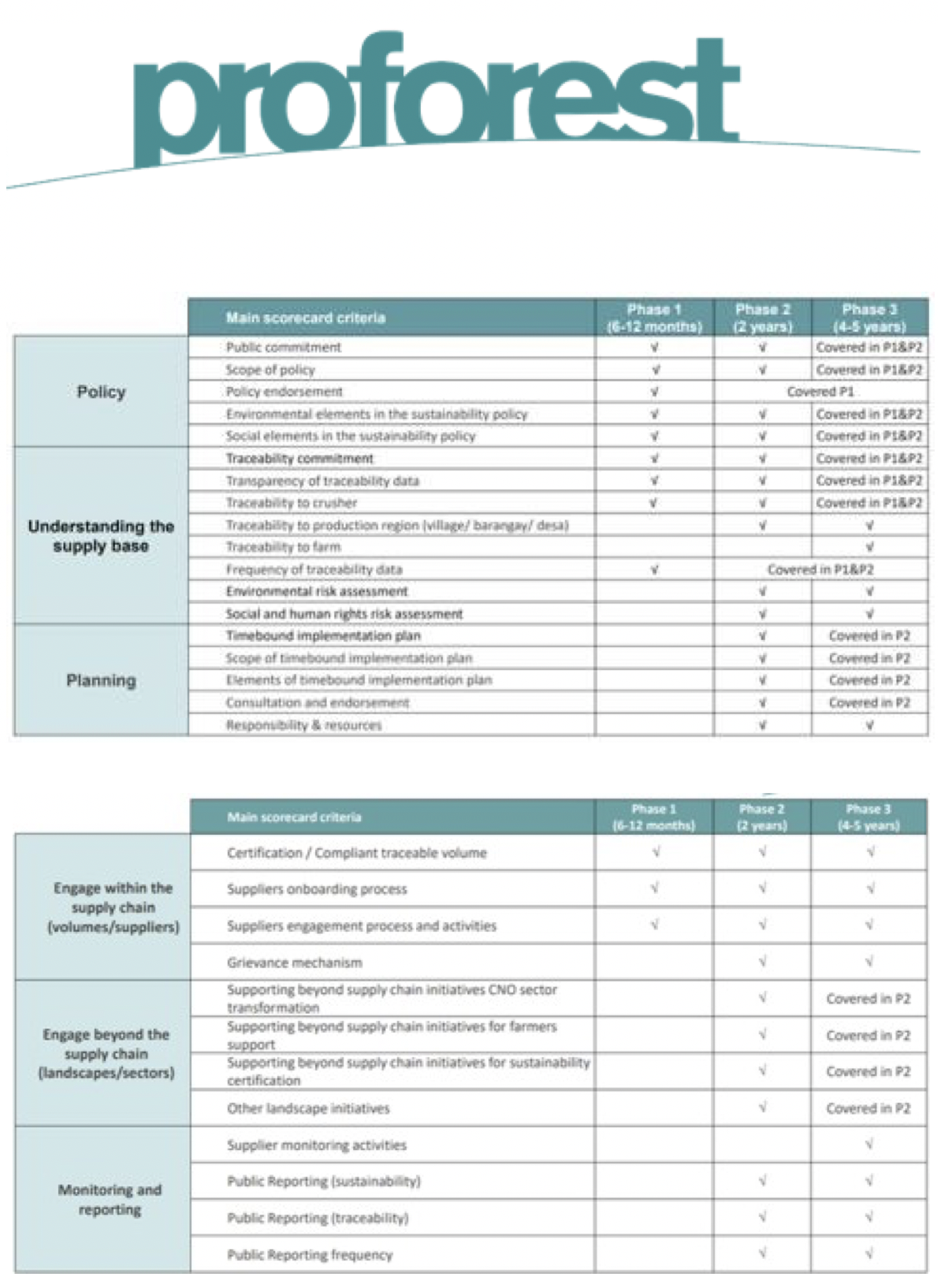
In 2022, Oleo-Fats began working with ProForest to meet a set of sustainability criteria required of coconut oil suppliers by large multinational customers. The ProForest Scorecard Criteria evaluates and advises Oleo-Fats in developing policies and programs over three (3) phases within a five (5) year timeframe.
Sustainability Sourcing Policy for Coconut Oil
Effective May 10, 2022, the Executive Committee issued the Sustainability Sourcing Policy for Coconut Oil, covering Oleo-Fats, its subsidiaries, officers, employees, contractors and suppliers. The policy states:
The Company shall integrate sustainable practices in its operations including but not limited to traceability, reliability, credibility and compliance to ensure the sustainability of the coconut sector that protects the people, planet and profit for the best interest of all its stakeholders.
Upscaling Supply & Quality
GRI 3-3 | SDG 2.3, 2.4, 17.16, 17.17
The Company collaborates with its upstream supply chain team and partners, including coconut oil mills, aggregators/dealers, and copra buying stations. The Lao Foundation plays a crucial role in this team, utilizing their multisectoral expertise to connect with and engage the coconut farming communities.
Farmers’ Registration
To ensure traceability in the coconut supply chain, copra origin is traced through multiple levels:
Country of origin: 100% local (Philippines);
Crusher/oil mill: traces origin to the geographical region where the oil mill is located, including adjacent regions and provinces where applicable;
Municipality/Barangay: based on the farmers’ registry of aggregators, dealers, and/or copra buying stations; and
Farm: provides the exact address, farm ownership details, available workers, number of families, size and scale of coconut planting, and other economic and social conditions in the area.
|
Farmers’ Agricultural Training
Conducting training in established copra source communities and new outreach areas is an essential program that teaches best agricultural practices and introduces new technology to improve coconut production.
|
Agricultural Training |
Coconut Replanting
Many smallholdings have senile trees, making the replanting of coconut seedlings a critical step in improving future supply.
|
The Company is collaborating with the PCA to introduce dwarf hybrid coconuts, which mature a few years sooner than tall varieties. The Company is also leveraging its R&D capabilities to explore coconut tissue culture technologies with the assistance of in-country experts.
Cash Incentives for Farmers
There is no guarantee that coconut seedlings distributed to farmers will be properly cared for in the crucial first few months after replanting. The Company’s team returns to the farms after three (3) months to check on the seedlings’ growth. Farmers receive a small cash reward for each successfully nurtured seedling at that milestone date. In the countryside, where every peso counts, a small financial reward is highly appreciated for a job well done.
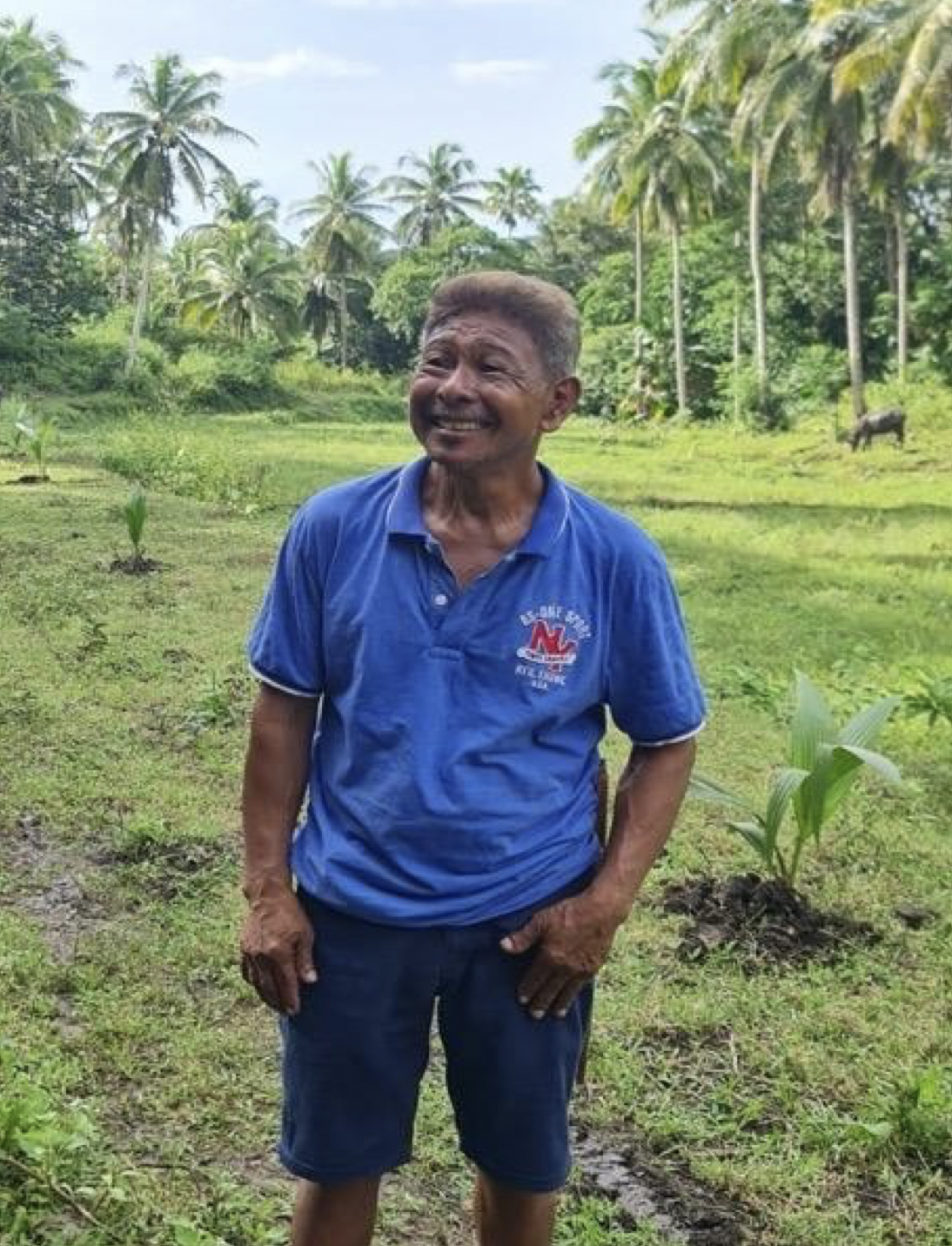 Mr. Romeo Baloloy planted 30 dwarf hybrid coconut Mr. Romeo Baloloy planted 30 dwarf hybrid coconutseedlings and received a cash incentive under the CSI. |
Organic Certification
Chemrez and Oleo-Fats have premium customers who require certified organic coconut oil. Consequently, the Company assists farms with their initial and annual certification inspection requirements.
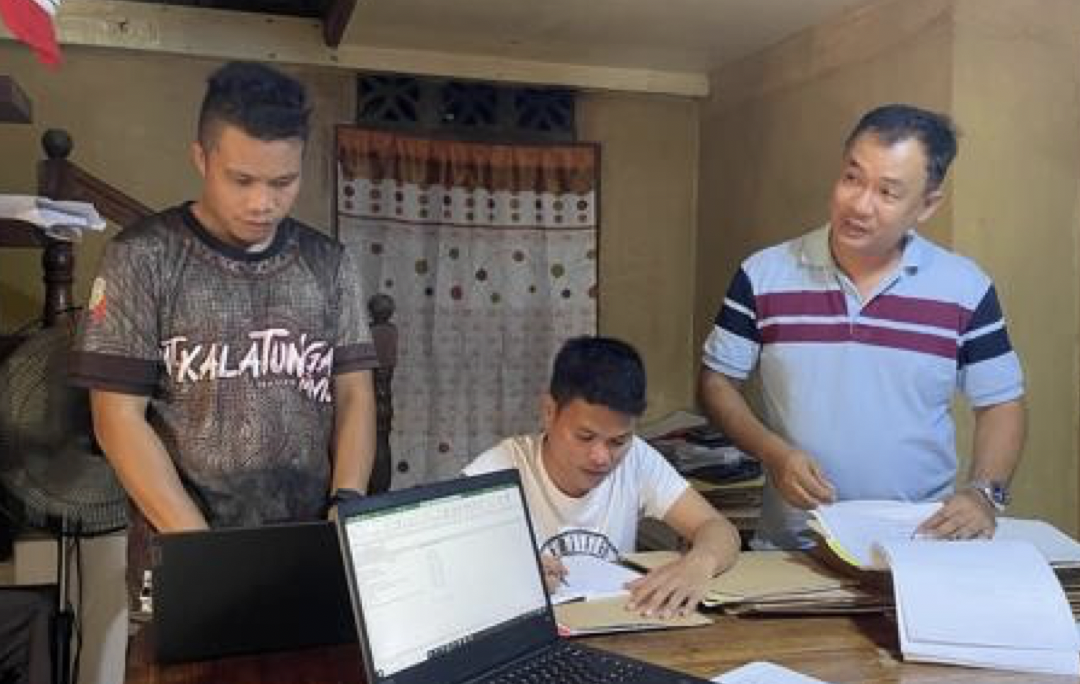 Organic copra certification document review in Davao Organic copra certification document review in DavaoOccidental. |

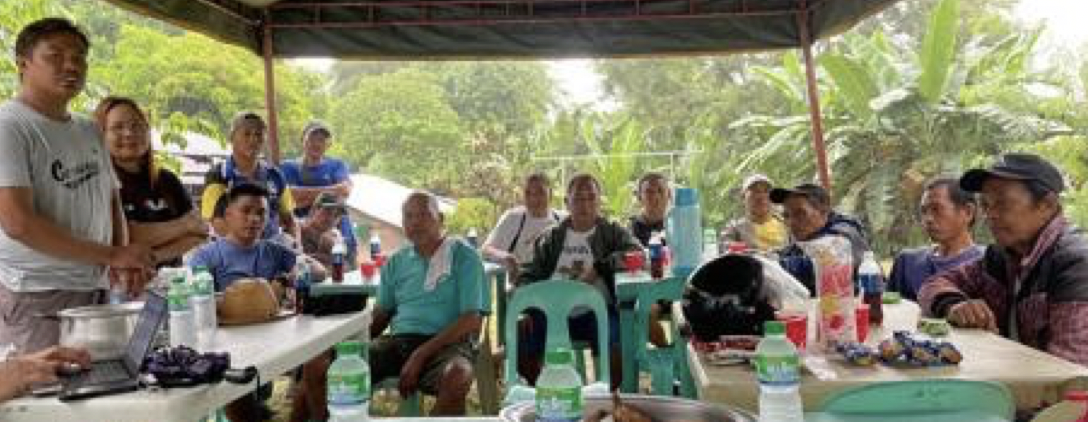 Farmers’ Meeting in Quezon Province
Farmers’ Meeting in Quezon Province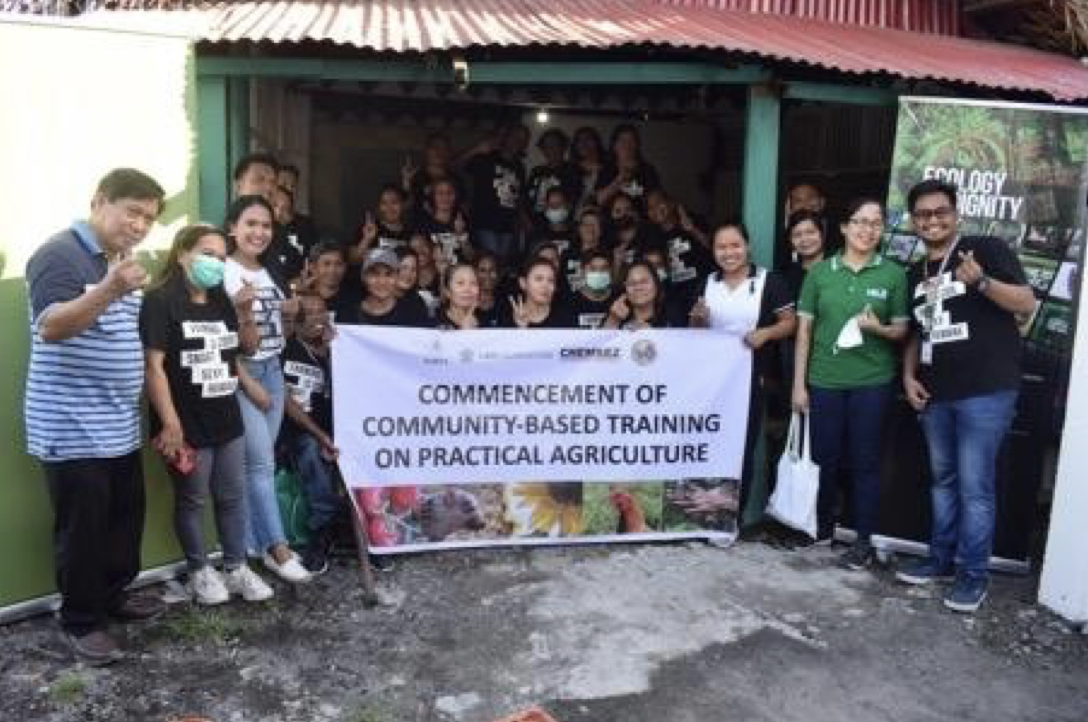
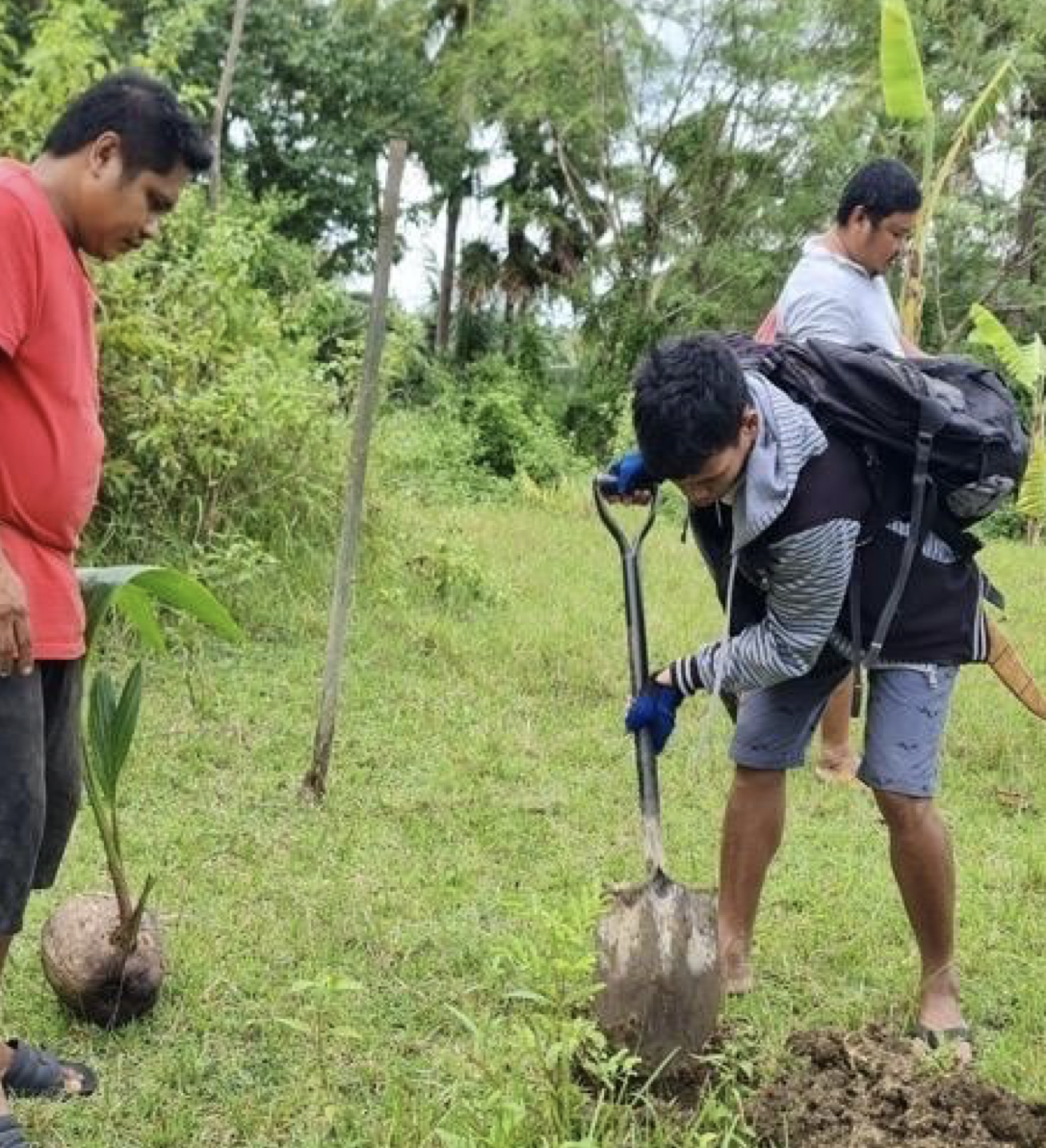 Coconut replanting
Coconut replanting